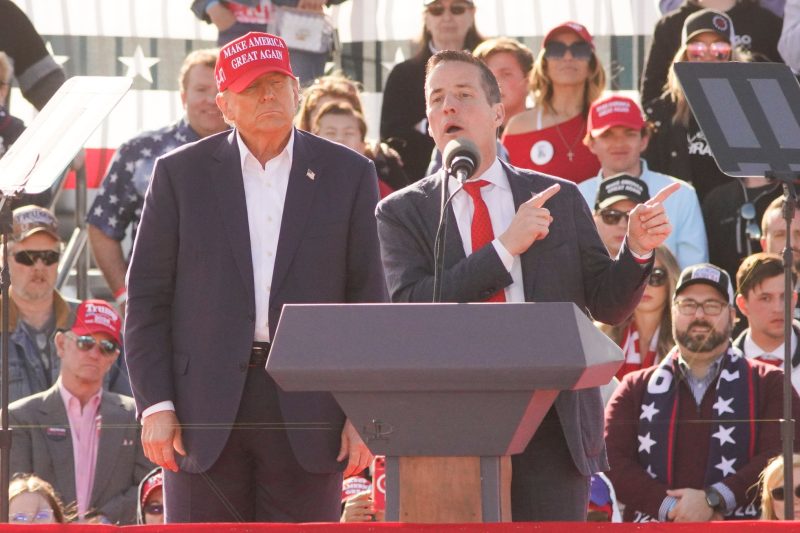Senate Republican Candidates are Trailing Donald Trump
The upcoming Senate elections have been a topic of much discussion and speculation. With the political landscape in the United States constantly evolving, the dynamics between Senate Republican candidates and their relationship with former President Donald Trump have become a focal point. Recent developments indicate that many Senate Republican candidates are finding themselves trailing behind Trump in more ways than one.
One of the primary reasons for this trend is the enduring influence and popularity of Donald Trump within certain segments of the Republican Party. Despite his controversial tenure as president and the events leading up to the insurrection on January 6th, 2021, Trump continues to maintain a loyal base of supporters who view him as a transformative and visionary leader. Senate Republican candidates who distance themselves from Trump risk alienating this significant voter bloc and may struggle to secure the necessary support to win their respective races.
Furthermore, Trump’s active involvement in endorsing and campaigning for specific Senate Republican candidates has provided him with a platform to wield considerable influence over the party’s direction and messaging. Trump’s endorsements carry weight with many conservative voters, who see him as a unifying figure capable of advancing their values and policy priorities. In contrast, Senate Republican candidates who openly oppose or criticize Trump risk facing backlash from Republican voters and may struggle to gain traction in competitive races.
Another factor contributing to the gap between Senate Republican candidates and Donald Trump is the ongoing debate within the party regarding its future direction and ideological stance. While some candidates advocate for a more traditional conservative approach, others align themselves closely with Trump’s populist and nationalist agenda. This ideological divide has created a rift within the party, with different factions vying for control and influence over its messaging and policy platform.
In light of these challenges, Senate Republican candidates must carefully navigate the complex relationship with Donald Trump to maximize their electoral prospects. Those who can successfully leverage Trump’s popularity while maintaining their own distinct identity and policy positions stand a better chance of resonating with a broad spectrum of voters and building a winning coalition. However, candidates who fail to strike the right balance risk being overshadowed by Trump’s influence and may struggle to secure the necessary support to win competitive Senate races.
As the Senate elections draw nearer, the dynamics between Senate Republican candidates and Donald Trump are likely to remain a key factor shaping the political landscape. How candidates navigate this relationship and position themselves within the broader Republican Party will play a crucial role in determining the outcome of the elections and the future direction of the party. Only time will tell whether Senate Republican candidates can close the gap with Trump and secure victory in this fiercely contested political environment.

